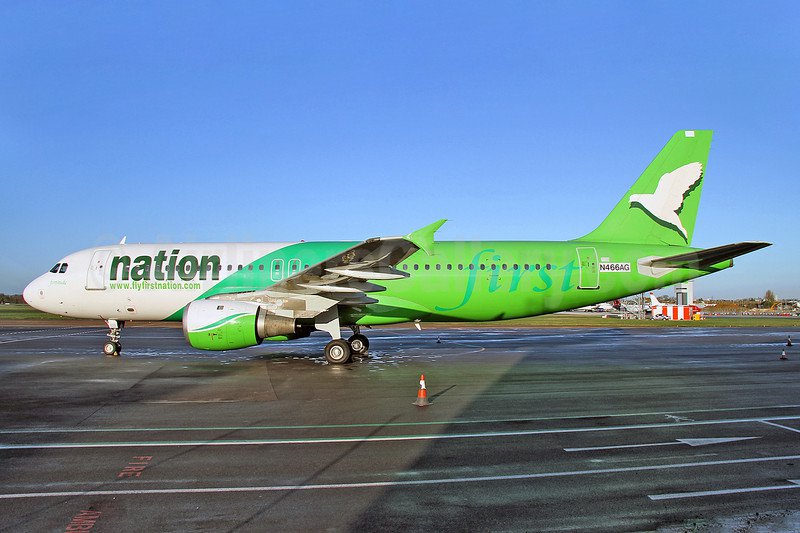- FirstNation MD Files Preliminary Objection Against N1.7bn Theft Charge
The Managing Director, FirstNation Airways, Mr. Kayode Odukoya, on Monday approached an Ikeja Special Offences Court to quash the N1.7bn theft charge against him and his airline by the Economic and Financial Crimes Commission.
Odukoya made the request in a notice of preliminary objection filed by his counsel, Mr. Olawale Akoni (SAN), before the court presided over by Justice Mojisola Dada.
The absence of a witness for the EFCC, however, stalled the process and the judge adjourned the matter till May 21, 2018 for hearing of the application.
The defendants had in the application dated April 30, 2018, and supported by an 11-paragraph affidavit deposed to by one Kerry Anakwenze, asked for an order striking out the information dated December 11, 2017, for want of jurisdiction.
The application read in part, “The grounds upon which this preliminary objection are brought are that: This honourable court lacks the jurisdiction and/or competence to entertain the information/charge No. ID/239C/2012 as presently constituted.
“The information/charge No. ID/239C/2012 contravenes the provisions of Sections 249, 252 and 77 of the Administration of Criminal Justice Law No. 10, 2011. Section 249 of the ACJL stipulates that prosecutorial authority before the High Court of Lagos State shall be exercised only in the name of ‘The State of Lagos’.
“The information/charge No. ID/239C/2012 filed against the applicants does not comply with Section 249 of the ACJL as stated above. This honourable court cannot countenance the information comprised in information/charge No. ID/239C/2012, as same is incompetent.”
The defendants said the charge, as presently filed by the EFCC, was an abuse of court process.
During Monday’s proceedings, the defendants’ counsel informed the court that the defence had filed a notice of preliminary objection, which had been served on the prosecution.
He also urged the court to give priority to the determination of the application challenging the jurisdiction of the court to entertain the charges against the defendants.
The EFCC counsel, Mrs. Zainab Etuh, confirmed that the prosecution had been served with the application but had yet to file its reply.
The EFCC had on March 16, 2018 arraigned Odukoya, alongside FirstNation Airways, and the parent organisation, Bellview Airlines, before Justice Dada on four counts bordering on forgery, use of forged documents, perjury and stealing of N1.7bn.
The court, however, granted a N10m bail to Odukoya, after he pleaded not guilty to the charges.
The EFCC had alleged that the accused forged the Memorandum of Loss of Lagos State Certificate of Occupancy registered as No. 33 at page 33, volume 1011 at the Lagos State Land Registry, Alausa, in order that the document could be acted upon as genuine.
The alleged forged document, according to the EFCC, was in respect of a property located at No. 29, Oduduwa Street, Ikeja GRA, Lagos.
Odukoya was also alleged to have used the false document and also gave false information on oath concerning the loss of the Certificate of Occupancy at the Lagos State Land Registry.
The EFCC alleged that Odukoya committed the offences of forgery, use of false document and perjury on March 21, 2013, and also stole and dishonestly converted to his own use N1.7bn belonging to Skye Bank on October 7, 2016.
According to the EFCC, the offences violate Sections 85, 86(1) 278 (1) (b), 285, 361 (1),(a) (b), 363 and 364 (1) of the Criminal Law of Lagos State 2011.
Odukoya, had in a statement made available to journalists a few weeks ago, denied the charges, describing them as bogus, without basis and targeted at impugning his and the other defendants’ integrity.


 Naira4 weeks ago
Naira4 weeks ago


 Naira4 weeks ago
Naira4 weeks ago




 Naira4 weeks ago
Naira4 weeks ago




 Naira3 weeks ago
Naira3 weeks ago
 Commodities4 weeks ago
Commodities4 weeks ago


 News4 weeks ago
News4 weeks ago
 Travel4 weeks ago
Travel4 weeks ago




 Naira3 weeks ago
Naira3 weeks ago





















